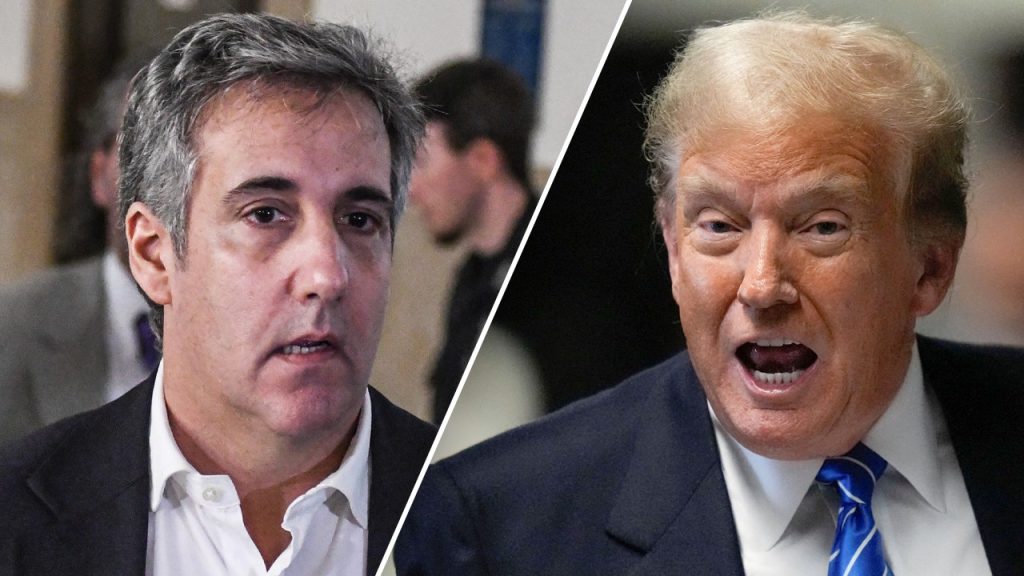Michael Cohen’s recent testimony in court centered around his role as President Trump’s “fixer” and his collaboration with the National Enquirer’s publisher, David Pecker. Cohen confirmed Pecker’s accounts during the trial, which included details of meetings, phone calls, and emails with Trump and others. A standout moment was when Trump predicted that many women would come forward as he launched his 2015 campaign, showing foresight. Cohen also recounted Trump’s reaction to former Playboy Playmate Karen McDougal’s allegations of an affair, calling her “very beautiful.”
Cohen’s credibility as a witness is expected to be heavily scrutinized during the trial, given his criminal history and public fallout with Trump. Judge Juan Merchan warned Cohen about making further comments after he posted a picture wearing a T-shirt featuring an image of an orange head behind bars. In his testimony, Cohen described being on top of the world during his time working for Trump, billing significant amounts for his services and handling pressure tactics for Trump. Despite his history with Trump, Cohen seems motivated to speak out against him.
Throughout the trial, Cohen recounted a meeting with Trump and Pecker in 2015, where the Enquirer agreed to run positive stories about Trump and negative stories about his opponents. The Enquirer also engaged in “catch-and-kill” operations to suppress negative stories about Trump. Cohen elaborated on the payments made to Stormy Daniels and Karen McDougal, detailing Trump’s approval and preferences for the transactions. Despite facing challenges, Cohen eventually made the payments in an attempt to protect Trump’s image.
A key moment in Cohen’s testimony involved a payment to Stormy Daniels, which he regarded as concerning after the release of the “Access Hollywood” tape. Trump’s response to the situation, according to Cohen, was to focus on getting past the election rather than addressing the issue with his wife. This distinction is crucial as it may reveal Trump’s priorities during the campaign. Cohen’s compliance with Trump’s instructions regarding the payments and the subsequent transactions further underscore his loyalty and commitment to Trump’s orders.
The portrayal of events by Cohen during the trial is supported by emails, texts, call records, encrypted messages, bank transfers, and an audiotape, leaving little room for alternative explanations. While the Trump team may challenge Cohen’s credibility based on his past, including criminal activities and a history of lying, the well-documented sequence of events remains uncontested. What transpires during the cross-examination and how Cohen responds to challenges will be critical in determining the impact of his testimony on the trial’s outcome.
Overall, Cohen’s testimony painted a picture of his deep involvement in managing controversies and legal matters for Trump, often at the expense of his own reputation and well-being. Whether the jury believes his account and finds it credible will be decisive in shaping the trial’s verdict. While the actions themselves may not be criminal, the motivations and implications behind them, especially during a presidential campaign, raise significant ethical and legal questions that will be further explored throughout the trial.


